Are you feeling a bit confused about your job responsibilities? You're not aloneâmany of us seek clarity in our roles to ensure we're meeting expectations and working efficiently. In this article, we'll explore an effective template for drafting a letter that clarifies your job responsibilities, helping to foster better communication with your supervisor. So, if you're ready to take control of your work life and gain a clear understanding of your duties, keep reading!

Clear Subject Line
Clarification of Job Responsibilities - [Your Name/Your Department] In the fast-paced environment of [Company Name], understanding specific job responsibilities ensures streamlined operations and effective teamwork. Employees in [Department Name] should be aware of their core tasks, contributing to overall productivity. For instance, the role of [Job Title] involves [specific responsibilities or projects], which are crucial for meeting departmental goals. Regular clarification sessions can enhance team collaboration, preventing overlaps or gaps in task assignments. Addressing any ambiguities promptly allows for greater clarity and alignment on expectations among team members, ultimately benefiting the organization's objectives.
Professional Greeting
A professional greeting sets the tone for clear communication and establishes a positive rapport between colleagues. A typical greeting may include the recipient's name, a polite salutation, and an acknowledgment of the context, such as expressing appreciation for a previous meeting or communication. For instance, "Dear [Recipient's Name]," followed by "I hope this message finds you well." This opens the channel for discussing job responsibilities in a respectful and professional manner, enhancing understanding and collaboration within the workplace environment.
Introduction and Purpose
In a corporate setting, clear communication regarding job responsibilities is essential for maintaining productivity and ensuring alignment within teams. The purpose of this clarification is to outline specific roles and tasks assigned to individuals within the company structure, such as responsibilities for project management or client relations. This can help eliminate misunderstandings, improve workflow, and enhance overall efficiency in accomplishing organizational goals. Proper delineation of job functions can also aid in professional development and performance evaluations for employees, ensuring everyone is aware of their expected contributions to the team.
Specific Job Responsibilities Inquiry
Consulting specific job responsibilities can enhance workplace efficiency and clarity. Employees often seek detailed understanding of their roles within organizations such as multinational corporations or small businesses. Clear delineation of duties, including tasks, deadlines, and reporting structures, is crucial. For instance, marketing teams may focus on projects such as social media campaigns or market research, while sales departments tackle client outreach and order processing. Ensuring that each team member understands their contributions can reduce confusion, improve productivity, and ultimately support organizational objectives. Regular communication about responsibilities can also foster a collaborative environment, encouraging professional growth and development.
Request for Additional Information or Meeting
In a corporate setting, delineating job responsibilities is essential for effective team collaboration and productivity. Employees, particularly those in managerial roles, often benefit from clarity in their daily tasks and long-term objectives. For instance, a project manager at a technology firm may require specific details regarding internal processes, stakeholder expectations, and deliverable timelines, which are critical for meeting project milestones efficiently. Furthermore, understanding the scope of responsibilities helps prevent overlap with other team members' roles, fostering a harmonious work environment and ensuring accountability. In situations where confusion arises, employees may request further clarification through meetings or additional documentation to facilitate a comprehensive understanding of their roles.

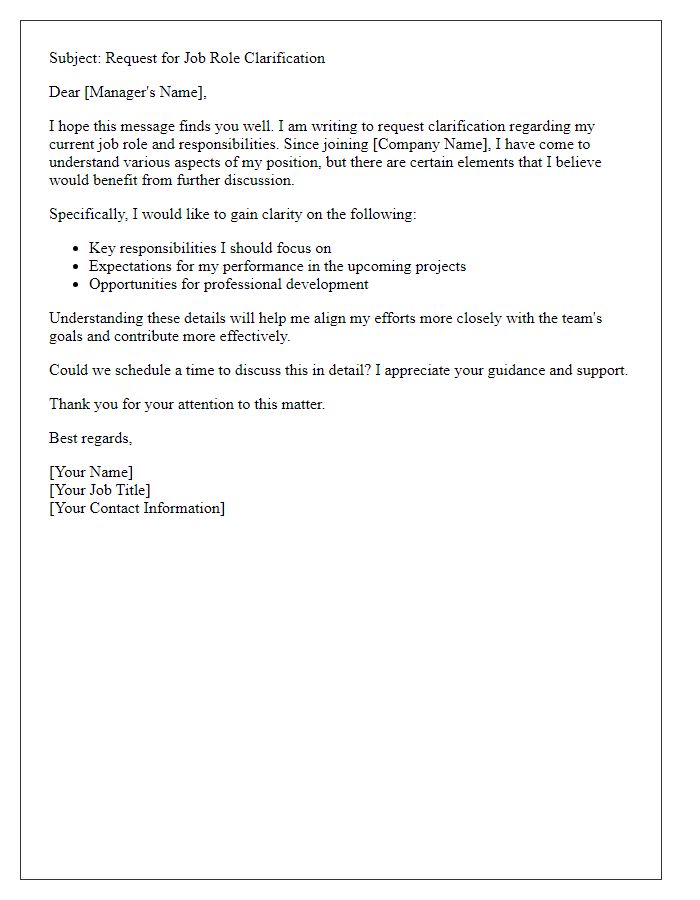
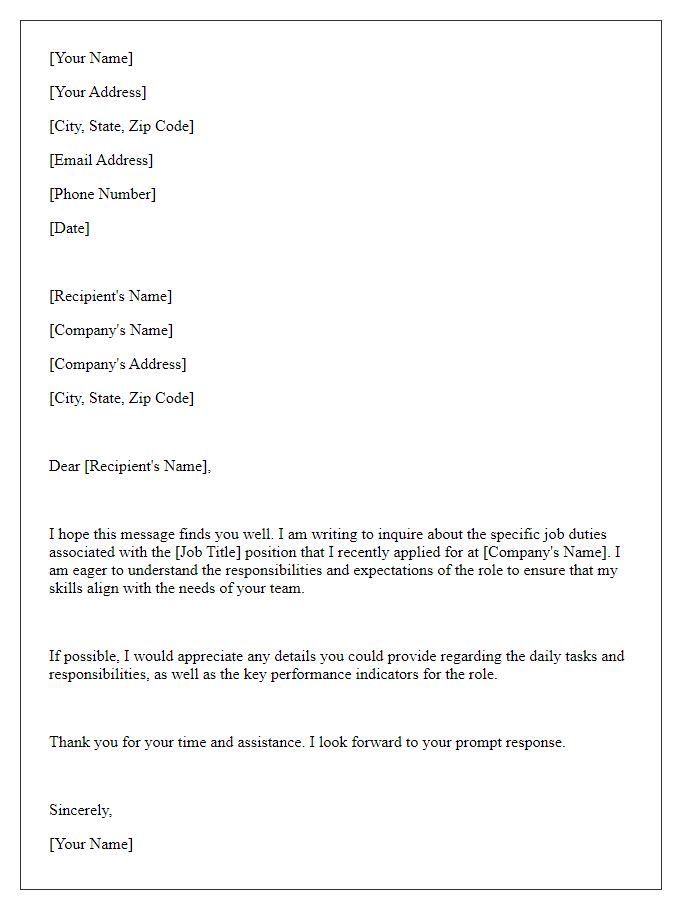
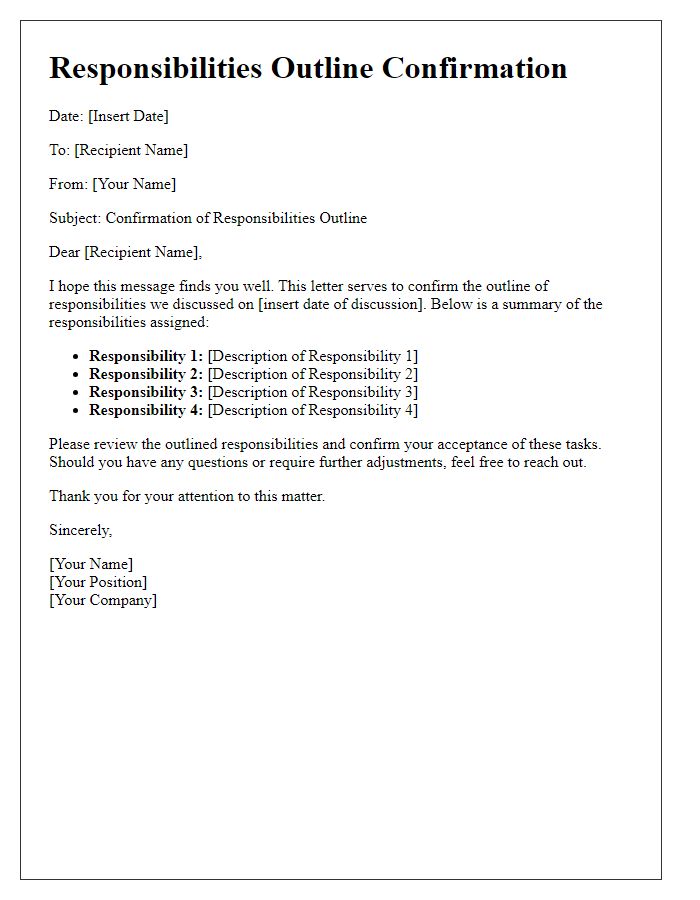
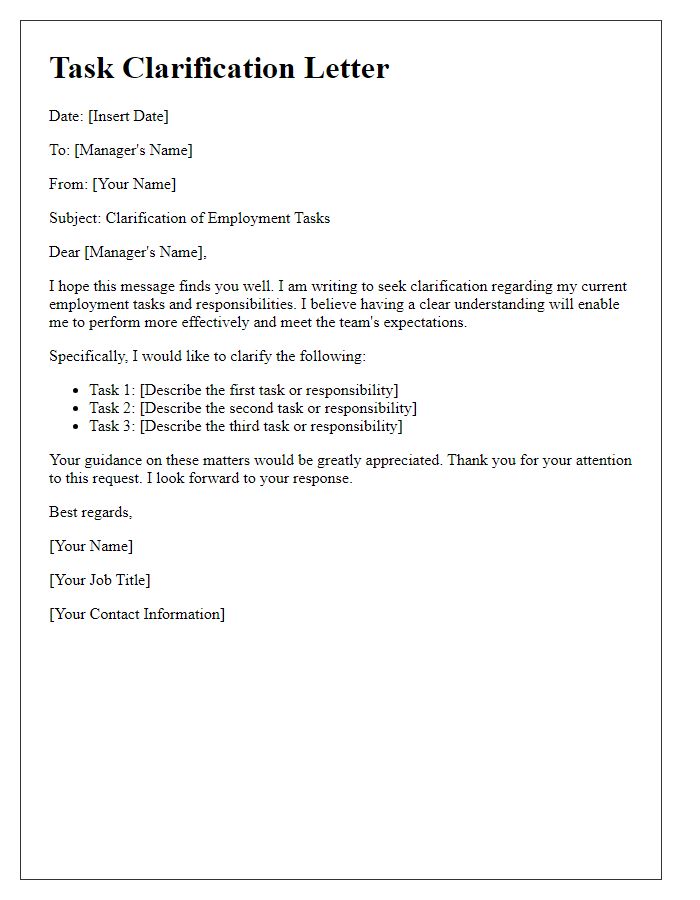
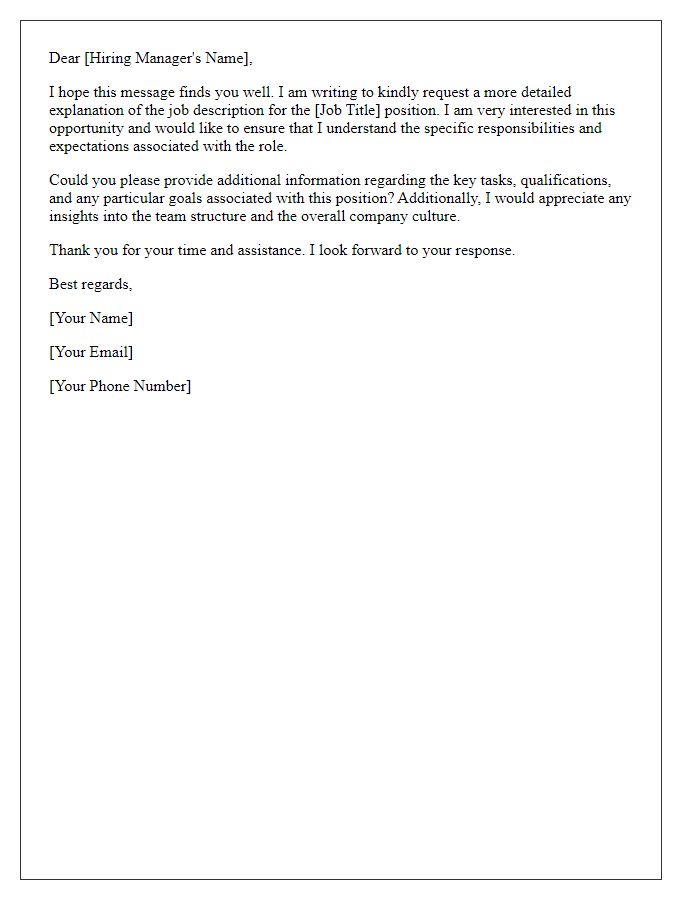
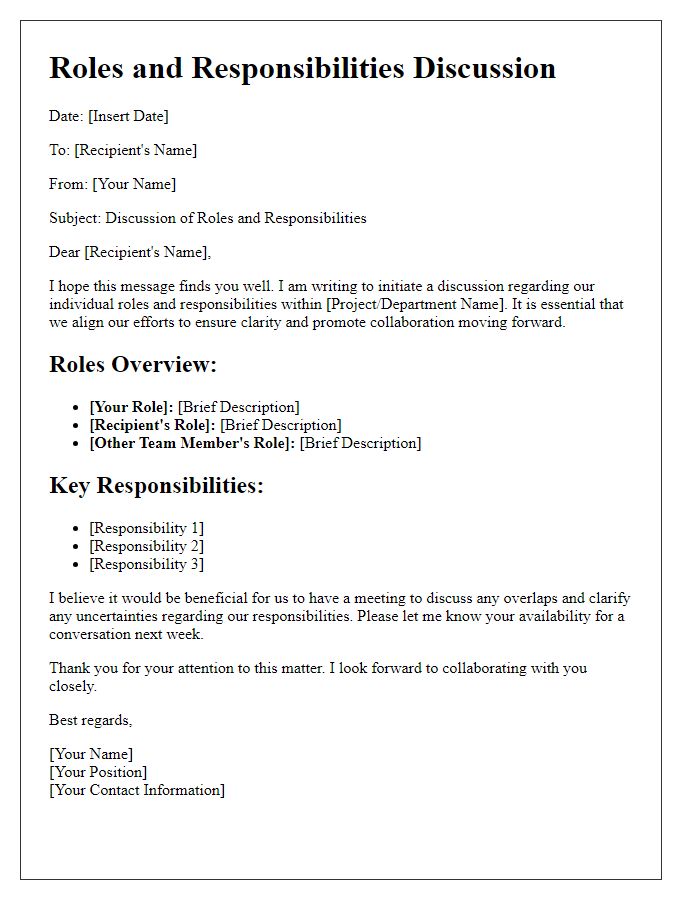
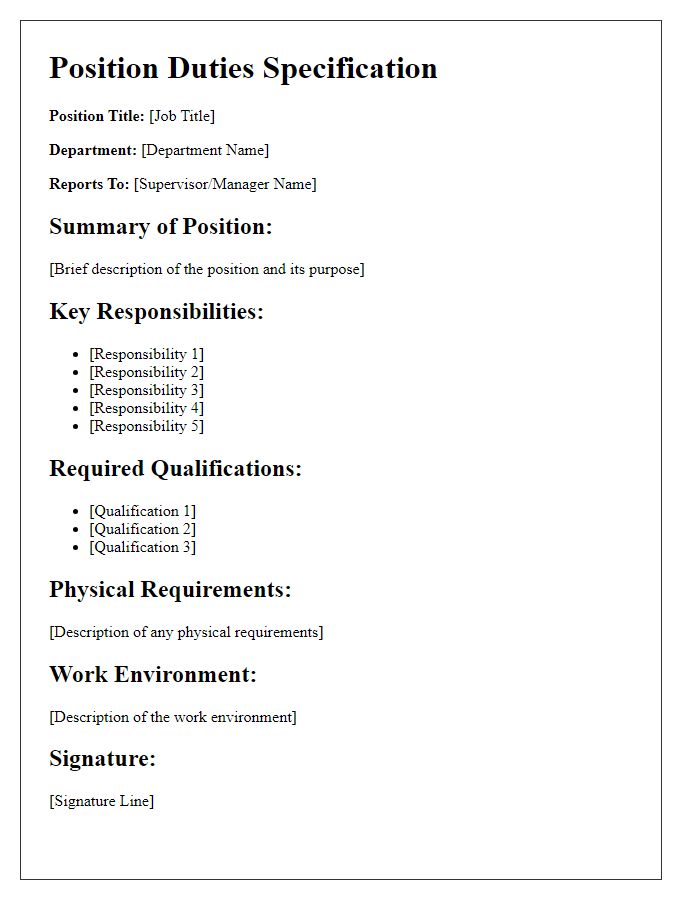
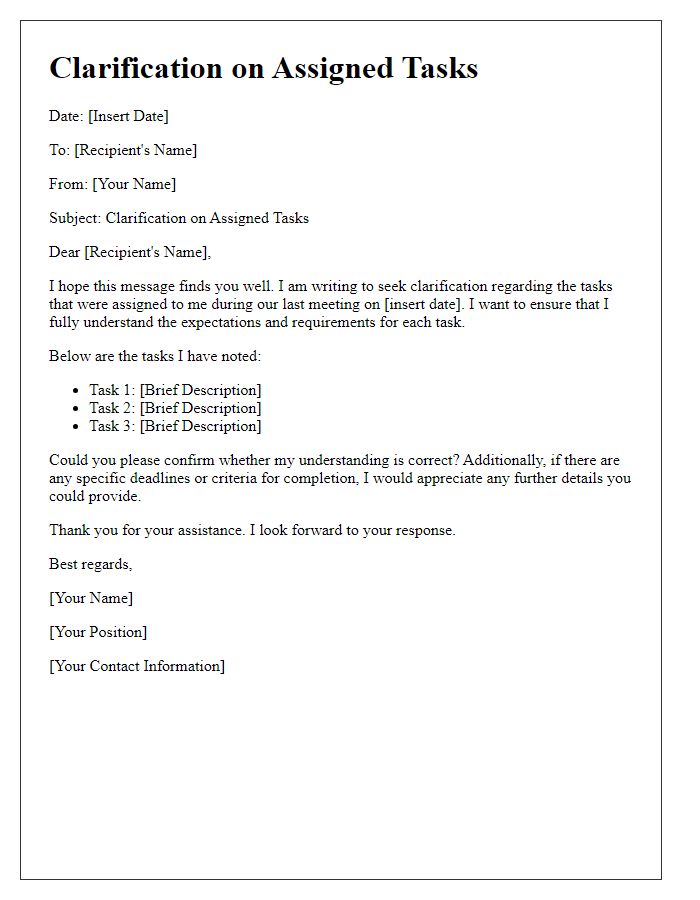
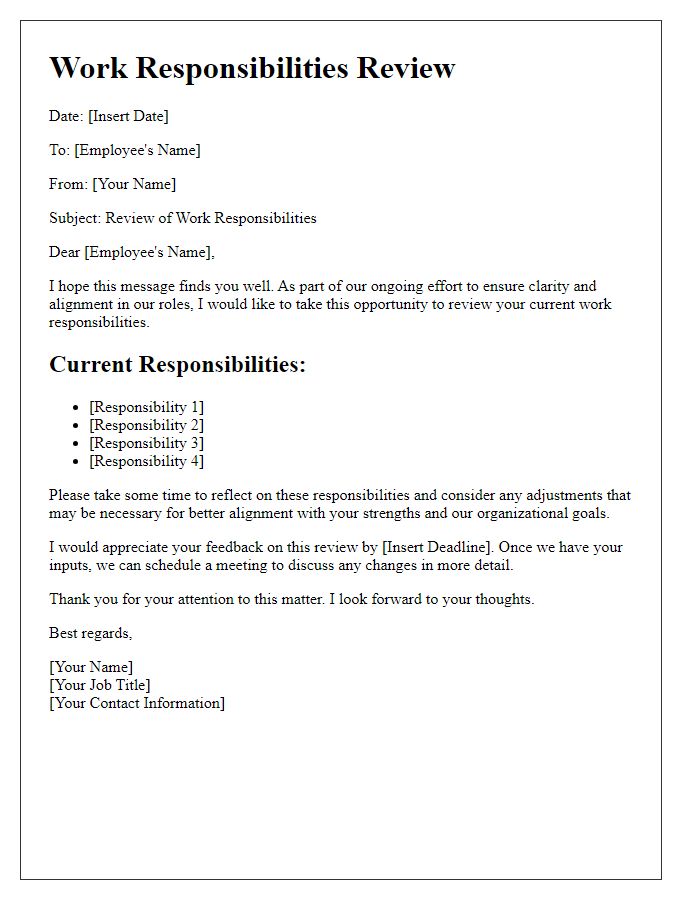
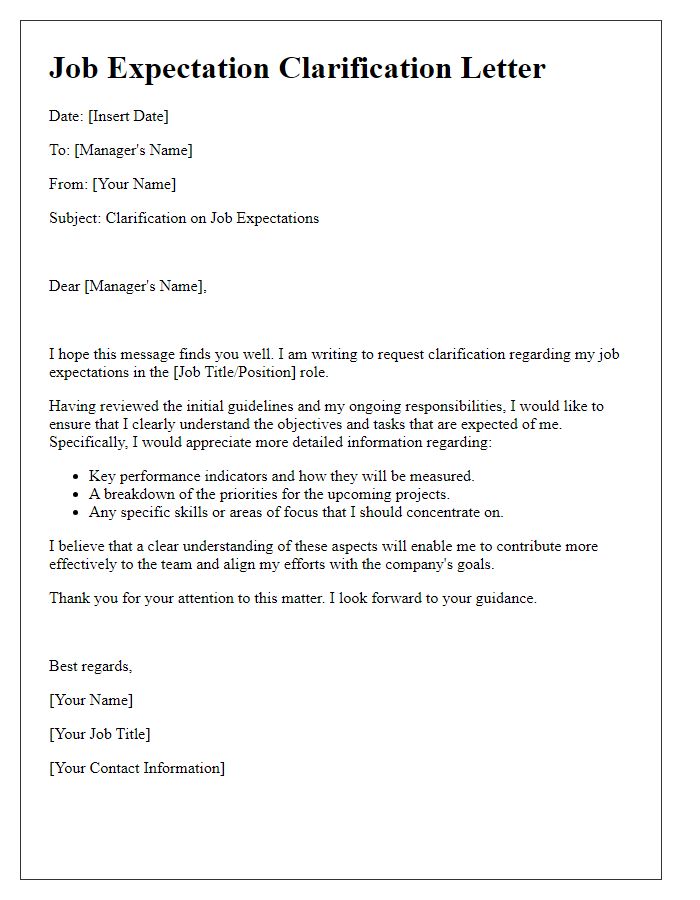


Comments